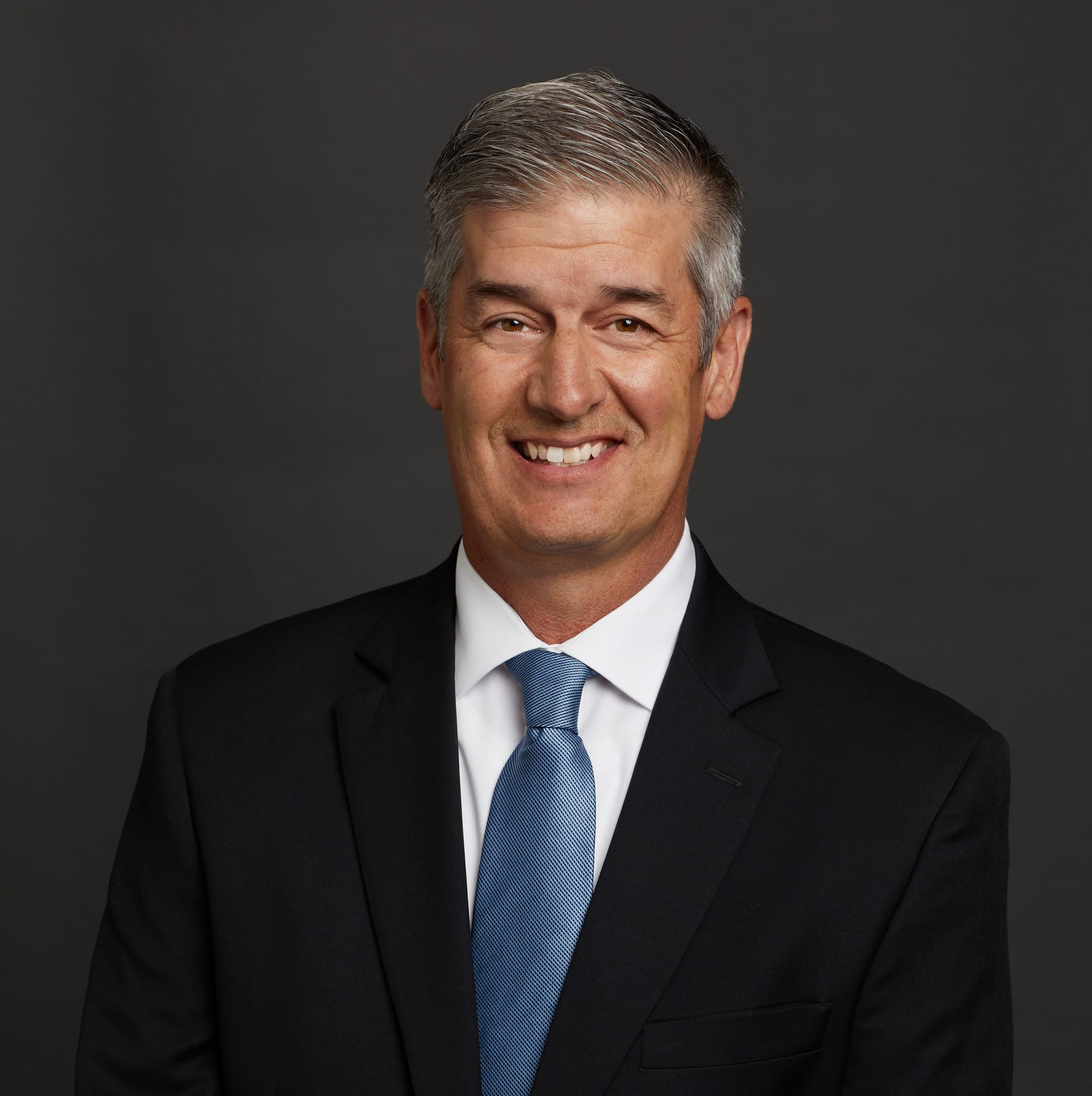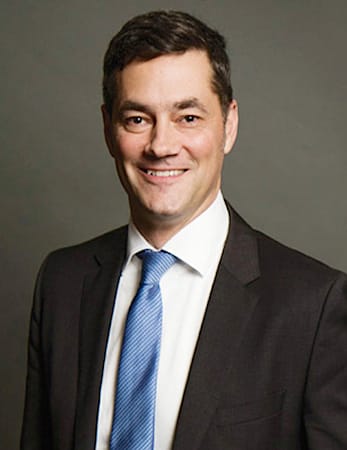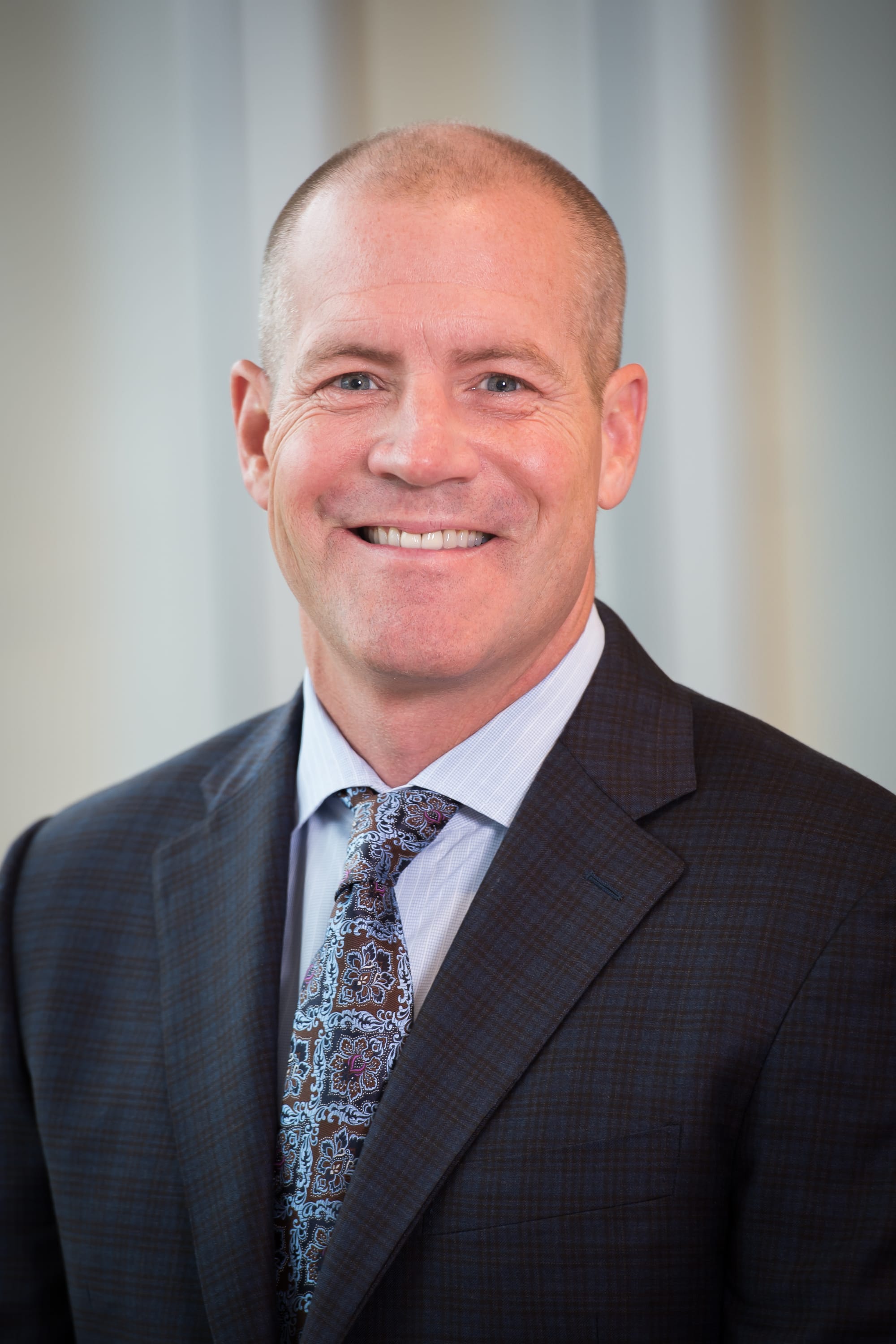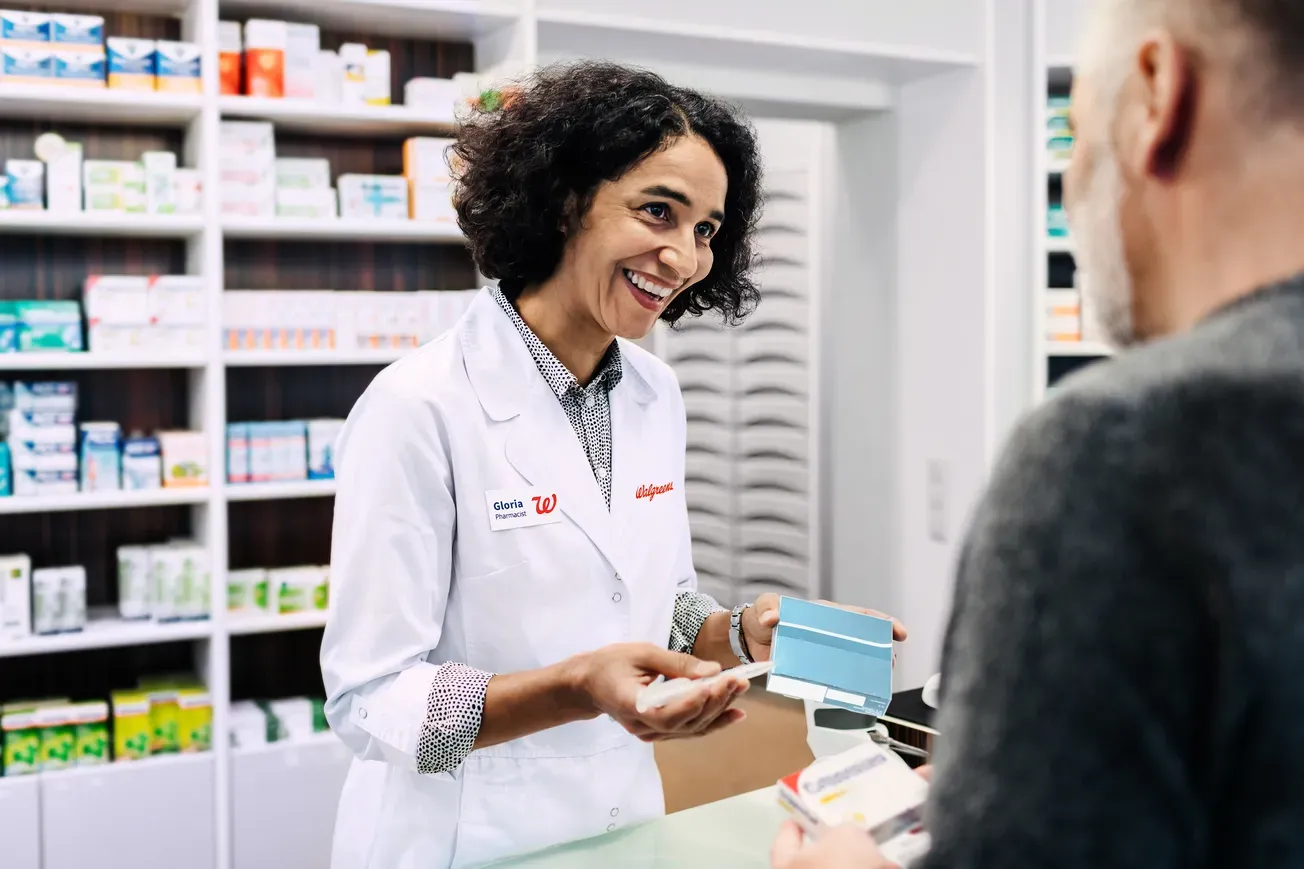Leading chain drug and distribution executives provide their outlook for the coming year on the following pages, spelling out the challenges and opportunities that lie ahead for their companies and the industry.

Prem Shah
Prem Shah
Executive Vice President, Chief Pharmacy Officer and President, Pharmacy and Consumer Wellness, CVS Health
The need for accessible and affordable care is greater than ever, and we’re uniquely positioned to increase our role in providing our customers and patients with the safe, high-quality care they’ve come to expect at CVS Pharmacy. From delivering millions of vaccines to help keep our communities safe to working to improve the store experience through new product assortments and enhanced delivery capabilities, we start from a strong foundation as a leading health and wellness provider, and our front-store and pharmacy colleagues position us for continued growth.
In late 2023 we announced CVS CostVantage, a modernized pharmacy reimbursement model to help ensure a sustainable future for pharmacy care. It shifts the way CVS Pharmacy is paid for the prescriptions we dispense and the services we provide, to be more closely aligned to the value we create as a local community pharmacy for the millions of patients we serve. We are leading with an approach that will shift how our retail pharmacy is compensated by implementing a more transparent and sustainable model that fairly aligns pharmacy reimbursement to the quality services we provide. It provides our PBM and payor clients with a foundational step towards more pricing clarity for consumers.
This new reimbursement model, along with the targeted investments in our pharmacy teams, will further contribute to positive patient outcomes, enable higher job satisfaction and sense of purpose, and a professional career track that offers growth opportunities.
We are continuing to implement new digital innovations that support both our pharmacy teams and consumers, helping to alleviate administrative tasks and provide more flexibility and capacity for pharmacy teams to be able to focus on providing the meaningful, personalized care patients depend on. We’re using technology and a new approach to dynamic workload sharing across our more than 9,000 pharmacies — operating as one team and fleet, rather than managing workload at each store individually. Certain parts of pharmacy workflow can be completed virtually and may be done by a team in a neighboring store or centrally, varying by state. This helps improve pharmacy workflow and workload, creating efficiency and capacity in stores for pharmacists to have more direct interaction with patients. This approach also helps us adapt to unplanned fluctuations in demand for staffing.
While apps and consumer-facing technology are aimed at improving the consumer experience, they also can help improve efficiency behind the pharmacy counter. This is critical to enabling the future of community pharmacy and addressing burnout and workload issues. For example, when patients self-service using the CVS Pharmacy app, it can reduce calls to the pharmacy for assistance with checking prescription status or initiating a refill that can be easily resolved digitally. Technology can also help pharmacy teams with balancing workloads, enabling them to have more control over their day. The approach is backed by pharmacists – 85% of pharmacists say that digitally automating more processes would improve the quality of interactions with patients. While most Americans want enhanced technology and expanded digital services, they still want to engage with their pharmacist in multiple ways, including both in-person and by phone. That’s why the future of pharmacy integrates a digital-first, but not digital-only, approach to improving the overall patient and pharmacist experience.
For added omnichannel convenience to meet consumer needs we’re focused on additional frictionless in-store and online experiences, which include CVS.com, Buy-online-pick-up-in-store (BOPIS) and our CVS Pharmacy app. Also, in early January we announced the streamlined evolution of our long-standing loyalty program into one savings membership with two tiers consisting of ExtraCare and ExtraCare Plus, the program formerly known as CarePass. The newly simplified programs will make it easier for members to access not only the value they are looking for but also the enhanced benefits, like same-day delivery, to fit their health and wellness needs. We’re really excited about this latest enhancement that will improve the loyalty experience for our consumers.
2024 is a year of possibility and opportunity to deliver superior care, health and wellness innovation and value to the millions of Americans we serve each and every day.

Tracey Brown
Tracey Brown
Walgreens EVP, President, Walgreens Retail & Chief Customer Officer
Retail is an ever-evolving landscape, influenced by innovation, consumer expectations and societal shifts. As we step into 2024, the retail industry, particularly in the realm of health care products and services, is poised for transformative change. At Walgreens, we are not just witnesses to these changes, we are leading the way, steering the course toward a dynamic future with customers and patients at the core.
Managing health and navigating health care can be difficult, and retailers that fundamentally understand this and react to it are the ones that will be top of mind in the marketplace. In order to be the leading partner in reimagining local health care and well-being for all, Walgreens is determined to make the experience easier and more connected.
The role of primary care clinics at retailers is expanding beyond the traditional model. According to a J.D. Power 2023 U.S. Pharmacy Survey, 83% of pharmacy customers are interested in receiving health and wellness services at their pharmacy. From preventive care to chronic disease management, health care retailers need to be able to address a range of health needs and create an environment where consumers can access health and wellness solutions conveniently.
As an integrated health care, pharmacy and retail leader with a 120-year heritage of caring for communities, Walgreens will continue to play a critical role in the U.S. health care system by providing a wide range of pharmacy and health care services. As consumer preferences shift in 2024, we expect to see three main trends in retail this year: value at the forefront, digital transformation redefining convenience and leveraging AI to forecast trends.
Value at the forefront
Providing value for our customers and patients is paramount to our ability to deliver as a health care retailer. Accenture reports that while consumers are making difficult spending trade-offs spurred by economic constraints, they don’t plan to do so when it comes to health and fitness spending. With this environment, it’s important that retailers focus on consumer value, especially when it comes to health.
Through Walgreens owned brand products, we are focused on increasing the breadth and value of our offering with an emphasis on quality, innovation and trust. Walgreens owned brands will continue to be a priority across the business as we seek to deliver high-quality products. Our owned brand health and wellness products are recommended by Walgreens pharmacists, and all products come backed by a 100% satisfaction guarantee.
The value that we provide is also inherent in the health services we offer, like “test and treat”, and in our store footprint that is so central to the communities we operate in. We provide various in-store and at-home testing and treatment options to help everyone stay healthy and feel better faster if they are experiencing symptoms. Testing is the best way to know for sure if you have a specific respiratory virus, so you can take appropriate precautions and get the right relief or treatment immediately.
Together, our value-based framework allows us to deliver more joyful lives through better health, and we’ll continue to look for ways to bring benefits to our customers.
Digital transformation redefining convenience
Advances in digital technology have profoundly altered the retail landscape, and the health care sector is no exception. There is a growing demand for same-day and next-day delivery options, and retailers are finding ways to meet customers’ need for speed. The pandemic shifted consumers to adopt more digital services and solutions and to focus more on their health, and both trends continue. In retail, we’ve seen significant growth in the use of 30-minute Pickup and 1-hour Delivery.
With the rollout of 24-hour Delivery late last year, Walgreens now offers the most retail products for delivery around the clock. This allows shoppers to get more than 27,000 items delivered across health and wellness, beauty/personal care, grocery, household essentials and more, any time of the day.
With Rx delivery options available at Walgreens as well, health care accessibility is ever convenient. Walgreens is committed to leading this transformation, ensuring our digital platforms not only meet but exceed the expectations of our customers.
In addition, Walgreens is constantly testing and trying new innovative concepts to create better customer experiences in its stores, including a new store format concept in Chicago. The concept is a digital-forward model that’s responsive to the changing omnichannel shopping patterns of our customers, focusing on increased convenience and speed through digital pickup, pharmacy and grab-and-go solutions.
Leveraging AI to forecast trends
Artificial Intelligence can drive forecasting using external data. With nearly 9 million average daily customer interactions across 200 million products, Walgreens has evolved processes and technology to create the best customer experience, whether in-store or via delivery. Our investment across increasingly sophisticated technology takes in everything from weather patterns to social media trends to evaluate large sets of data and guide decisions on where to place inventory.
This helped us predict regional and local trends during cough, cold and flu season earlier this year so Walgreens could ensure we had the over-the-counter products our customers and patients needed in stock throughout the season. Our AI forecasting model predicted higher rates of fever and lower rates of congestion and cough, leading us to stock more pediatric fever reducers in the areas where there was expected to be the most demand.
Promising accurate orders at scale can be challenging across the retail industry, but Walgreens is committed to showing up for our customers through our convenience and community-centric approach. Real-time inventory is necessary to be stocked and available so we can deliver products our shoppers need and make their lives easier.
The retail trends we anticipate in 2024 are not just predictions; they are the result of a proactive approach to understanding and responding to the evolving needs of our customers. And as trends come and go in an industry that’s always evolving, we recognize one thing that’s constant: the trust that millions of Americans have in Walgreens to take care of their health.

Jennifer Zilka
Jennifer Zilka
President, Good Neighbor Pharmacy, Cencora (formerly AmerisourceBergen)
While the COVID national emergency has officially ended, the pivotal role that pharmacists played in the distribution of vaccines, tests and treatments during this time has ignited an unprecedented momentum that continues to reverberate. Pharmacies and pharmacists are no longer regarded as just medication dispensers — but instead as the accessible, equitable and high-quality health care destinations and providers that Good Neighbor Pharmacy (GNP) has always known them as. Our network’s four-decade commitment to supporting independent pharmacy customers through significant industry changes is unwavering — and as we look to 2024, we see a pivotal moment to harness this shift in the public’s perception of pharmacies and pharmacists to help our customers seize opportunities and overcome challenges on the horizon.
Again, independent pharmacies have established a strong foundation for their reputation and significance in the communities they serve. This is especially true for our Good Neighbor Pharmacy customers, who were recognized in 2023 by both J.D. Power as No. 1 in Customer Satisfaction with Chain Drug Store Pharmacies for the seventh consecutive year and Newsweek’s 2023 list of America’s Best Retailers. Put simply, patients trust GNP pharmacies more than any other pharmacy chain or group in the U.S., and we understand the significance of and responsibility that comes with this distinction.
That’s why in the year ahead, Good Neighbor Pharmacy will delve even deeper into our data-driven approach to making strategic investments in creating and refining of solutions and strategies that allow our customers to continue delivering exceptional care in their communities.
In mid-2023, GNP conducted a research study to better understand post pandemic shopping behavior, the results of which posited that patients not only trusted the pharmacies in our network, but also expected pharmacists and pharmacy staff to advise them on their health, wellness and medication goals. With this customer priority made clear, empowering pharmacies in our network with the tools to expand their practice beyond providing COVID-related clinical services is a key area of focus for our team in the year ahead.
In the competitive pharmacy landscape, a common challenge for independents is simply ensuring that their communities are aware of all that they offer, and having the ability to meet patients and potential patients where they are at — which is online. In our 2023 research study, 80% of patients expressed interest in utilizing digital services from their pharmacy, expecting their pharmacy to be accessible at all hours with services like mobile apps, text reminders and easy scheduling. Good Neighbor Pharmacy customers can rely on our dedicated digital marketing solutions and counsel to optimize their digital presence, automate communications and effectively insert themselves in the “path to purchase” for customers searching for pharmacy-related products and services before they leave their homes.
In the year ahead, Good Neighbor Pharmacy will continue to invest in our digital marketing and analytics solutions — not just for the sake of helping our customers drive awareness for their pharmacies and create touchpoints for patients to engage with them more easily, but also enhance their ability to bridge gaps in and barriers to care.
Independent pharmacies, including our GNP customers, organically care for underserved and socially vulnerable patient populations due to their location and the high-touch services they provide. These pharmacists sit in church pews and on PTA boards with their patients, and have naturally cultivated deep and meaningful relationships with them, as well as an understanding of their needs and the barriers that exist when it comes to accessing care.
Our customers have worked tirelessly to bridge those gaps — from employing multilingual staff and translation services to creating aids and services for patients with transportation and mobility challenges. However, the team at Good Neighbor Pharmacy endeavors to help our customers take this incredible work a step further by tapping into the expertise of the larger Cencora organization to pilot a solution that provides our GNP pharmacies with detailed snapshots of their communities and insights that will help them identify other gaps in care that can be filled with tailored service offerings, such as immunization and medication adherence programs.
While we see 2024 as a year filled with opportunities to build and refine solutions and services that support the important role of the pharmacist in the health care ecosystem, it’s also critical address the concerns that come with the uncertainty and financial challenge of owning an independent pharmacy in today’s environment. That is why Good Neighbor Pharmacy will continue to work tirelessly alongside our industry partners in the year ahead to advocate for the fair and adequate reimbursement for products and services pharmacists dispense and provide, as well as other measures to preserve access to community-based pharmacies and their long-term viability as health care destinations.
As the new year approaches, our anticipation heightens for the myriad opportunities ahead to invest in new solutions and enact legislation that will help solidify independent pharmacies as health care destinations and enable them to remain competitive and viable for generations to come. Independent pharmacies have proven their important place in the health care ecosystem, and Good Neighbor Pharmacy is eager to help customers use this momentum to ignite change while staking out new ground for the future of independent pharmacy.

Brad Cochran
Brad Cochran
Executive Vice President, Pharmaceutical and Specialty Distribution, Cardinal Health, and President, The Medicine Shoppe International Inc.
As trusted members of the patient’s health care team, pharmacists continue to expand their responsibilities and service offerings to meet the evolving needs of their patients and communities. Patients value the personalized care, attention and accessibility offered by their community pharmacist and turn to the pharmacy for clinical services and support with self-care and illness prevention, chronic disease management and elder care.
Looking ahead to 2024, pharmacies will continue expanding their service offerings as they become community health care destinations. Prescription fulfillment is just the beginning of the pharmacist’s relationship to the patient. Providing an initial touchpoint to start a conversation about offering clinical services, such as diagnostic testing, health screenings, medication therapy management and immunization programs, can keep the patient coming back, providing the potential for new revenue sources for the pharmacy. At Cardinal Health and Medicine Shoppe, we are focused on meeting the evolving needs of community pharmacies to ensure they are well positioned to provide their patients with the products, solutions and services they have come to expect from the pharmacy.
Since the pandemic, more people have taken an interest in their health and well-being, and patients have come to rely on their community pharmacist for over-the-counter product recommendations and preventative care services, including immunizations. According to a 2023 IQVIA study, 60% to 70% of all influenza vaccine and 40% to 50% of pneumococcal vaccines are administered at the pharmacy. And since the introduction of COVID-19 vaccines in 2021, pharmacies have administered more than 300 million doses. Through our immunization specialized care center, we offer resources, guidance on compliance, marketing tools and additional certification training to help community pharmacies become year-round immunization destinations in their communities.
Patients are taking charge of their health and well-being and are seeking alternatives to traditional health care visits that offer convenience and enable them to take preventative measures or seek timely medical attention. Over the past five years, there has been significant growth in the demand for O-T-C products, including supplements, contraceptives, smoking cessation aids and self-diagnostic tests that can be taken at home or in the pharmacy for cholesterol, HIV, pregnancy and more.
As the population ages and lives longer, there are now 48 million caregivers in the U.S., according to AARP, demonstrating the continuing need in this area. AARP data shows that 30% of caregivers are under age 35, so it’s more important than ever to understand the changing needs of caregivers and become a resource to them. Many first-time caregivers turn to their community pharmacist, especially in rural areas, where one in three caregivers are located. The average caregiver spends $7,200 out of pocket to care for their loved one, which represents a significant opportunity for pharmacies to serve as a point of connection to resources and support of the patient in their care. This includes O-T-C products that support senior care, including medications for conditions like arthritis, joint pain, osteoporosis, and daily living aids like walking supports, hearing aids and reading glasses.
As consumer health programs, including Medicare Advantage plans, continue to grow, we expect to see increased demand for these products as beneficiaries who may have previously hesitated to purchase these items due to cost considerations may now be more inclined to utilize their O-T-C benefits, leading to higher sales and usage of consumer health products.
We understand the value of a customer-centric store front end and offer a suite of solutions designed to help community pharmacists enhance the experience for their customers. We are also making investments in our supply chain to quickly adapt to product demand to ensure community pharmacies have the right products at the right time. This spring we will break ground on a new Consumer Health Logistics Center that will serve as a central replenishment center for the distribution of consumer health products. Utilizing the latest logistics technology, including automation and operator workflows, will allow us to enhance efficiency as we receive and optimize the flow of products, enabling agile response to product demand while enhancing our customer service levels.
As community pharmacies continue to evolve into community health destinations, they can offer convenient and accessible health services to help their patients. Cardinal Health and Medicine Shoppe will continue to offer support and solutions to help community pharmacies meet the needs of their patients today and plan for the future.
For more than 50 years, Medicine Shoppe International has provided pharmacists a path to ownership that offers a strong national brand, expert pharmacy franchise consultants and a complete operating model so they can make a difference in their communities.

Jeff Leger
Jeff Leger
President, Shoppers Drug Mart
At Shoppers our goal is to help Canadians live life well. As such, a significant part of our commitment is to help increase access to health care for Canadians.
In 2023, the Ontario and British Columbia governments announced that pharmacists across each province can now better support patients by assessing and prescribing treatment for a number of minor ailments and care for minor injuries, a service already available in most provinces. We believe this is just the beginning. In 2024 and the years to come Shoppers is committed to continuing to work with government to find collaborative patient care solutions that will allow pharmacists to tap into their full potential and continue closing gaps in the current public health care system.
The expanding scope of practice for pharmacists across the country has allowed us to reimagine the way we serve our patients as we continue to look for new ways to improve access to care for Canadians. In 2022 we rolled out Pharmacy Care Clinics in select Shoppers and Real Canadian Superstore locations in Alberta. The clinics offer patients access to a range of pharmacy health care services, including chronic disease management and the assessment and treatment of injuries and common ailments such as urinary tract infections and pink eye. Making these services available in a pharmacist clinic setting provides patients with convenient primary care options. These options mean a reduction in ER visits, shorter wait times for physician appointments, and ultimately better health outcomes for patients. As of the end of 2023 we have opened more than 50 Pharmacy Care Clinics across Alberta.
Last year we also partnered with a number of provincial governments, pharmacy associations and pharmacy colleges to launch care clinics in Nova Scotia and New Brunswick as well as a pharmacist-led care pilot project in Saskatchewan. These partnerships allow patients to book appointments to receive health care services at select pharmacy locations across the province for an expanded variety of health care needs. These types of innovative partnerships are a great example of how a collaborative approach between health care practitioners and their regional governments can pave the way toward solutions that improve access to public health care for all Canadians.
In 2023 we launched Shoppers Health + Pharmacy Care Clinics in select Ontario and Alberta stores that really put the patient experience first. The first three locations opened in Ontario stores, followed quickly by an additional three locations in Alberta. The new Pharmacy Care Clinics are fully integrated with the pharmacy, which has undergone an extensive redesign to improve the overall patient experience. In these locations, both the dispensary and clinic spaces include a range of redesigned patient-friendly features: an efficient single counter for prescription processes, including drop off, pick up, counseling and payment; secure lockers where customers can access prescription refills ordered through the PC Health app (Ontario only); a care concierge, to facilitate smooth and personalized clinic visits; child-friendly consultation rooms for family comfort; and new “Let’s Talk” spaces for counseling.
In addition to expanding scope of practice to pharmacists and the opening of new Pharmacy Care Clinics, we are committed to supporting the ongoing work of our pharmacists to provide pharmacy services such as medication reviews, dispensing, vaccinations, and diabetes and lipid testing. Our focus remains on improving access to health care for Canadians, and we believe pharmacists have a crucial role to play as we work towards this goal.

Claire Biermaas
Claire Biermaas
President, Corporate Partnerships, Cencora
This past year has been all about partnership and collaboration for Cencora’s Corporate Partnerships team. In 2023, we continued to serve as a strategic partner to our largest customers, all while helping them navigate supply chain volatility. We’re thrilled by the level of heightened collaboration we saw this year, made possible by our corporate venture capital fund, Cencora Ventures. Our investments have given us the ability to identify emerging trends, helping us to provide tailored solutions for customers and anticipate their future needs.
This year also brought major changes to the team, as my mentor and friend, George Rafferty, retired as president of our Corporate Partnerships group. I’m grateful for George’s steadfast leadership and for his confidence in me to lead this team in a way that helps provide stability for our customers and for our colleagues on the team. Over the past few months, I’ve hit the ground running by reviewing the needs of both our team and the broader marketplace to validate or make changes to our approach to supporting our customers. Defending and maintaining the Corporate Partnerships team’s culture of curiosity, innovation and outside-the-box thinking gives us the ability to develop solutions that help our customers grow, support even more patients and deepen their relationships with existing ones.
Integrating services to bolster growth
Moving into 2024 and beyond, there’s ample opportunity to do more, including investing in the breadth of services we offer to our customers. For our largest customers – think of those who operate more like health care businesses than your typical pharmacy – our team is focused on opportunities we have to offer support beyond distribution.
What does that entail? It means taking a fresh look across the Cencora enterprise for opportunities that meaningfully tap into the needs and wants of each customer, especially as the health care landscape continues to evolve rapidly. Part of that approach means looking around corners — for example, deploying our market economics team for forecasting — ultimately helping customers predict their needs before they need them, and deliver the solutions that will add tremendous value for customers and their consumers. This includes, as companies look to scale, innovative technologies and solutions that keep pace with growth while improving efficiencies across the entire supply chain.
Global supply chain shortages persist
While there is an exciting pipeline for growth in 2024, challenges will inevitably persist. Most importantly, the continued pressure on product availability globally, not just in the U.S., is a chief concern. Product availability is a big deal — without products our customers can’t operate, and patient care ultimately suffers. To anticipate these challenges, we play a critical role in trying to make sense of what might be happening geopolitically that may impact customers’ ability to get the products they need. Fortunately, Cencora’s global reach means we can lean on our colleagues across global markets for expertise on trends, allowing the flexibility and time to adjust our distribution model and avoid potential delays in the marketplace.
Yet product availability is more than just securing and delivering products for our customers. It’s ensuring that we’re putting products in the right places when we do have them. That’s why the team is looking at marketplaces more surgically, so we can manage inventory and our customers more precisely.
While seemingly unassuming, this specificity is more important than ever, as customers start to look more like health care companies than traditional pharmacies. Center stage to this is the rise of GLP-1s. The growth in demand for these products is like nothing we’ve ever seen before. This class of drugs has the potential to not just impact the diabetes epidemic and the weight loss marketplace but become more innovative over time with fewer side effects and offer potential benefits to patients’ cardiovascular health. While costs and reimbursement models still need to be figured out, we’re watching this product category play out closely.
Finally, the Corporate Partnerships team is most excited about where we are when it comes to being trusted by large corporate institutions that have a tremendous impact on health care. Cencora is so much more than just distribution and wholesale and, for the first time, our customers are realizing the critical value we provide. They are also being more transparent with us and sharing their strategies so that we can develop deeper, more strategic relationships to drive value and growth together. ν
Scott Miller
President, Strategic, Community, and Specialized Pharmacy, McKesson

Scott Miller
The pharmacy industry has undergone major changes and challenges in the past few years from higher cost pressures across the entire healthcare ecosystem, shifting patient expectations and regulatory changes. I expect 2024 will be no different. However, each year brings promise and potential for new innovations and opportunities for the practice of pharmacy to further demonstrate its value and improve patient outcomes.
The Path to Provider Status Continues
Patients are looking for accessible and convenient healthcare. Pharmacies are well equipped to do just that – combining their frequent touch points with customers and the pharmacist’s professional training and knowledge. That’s why, throughout 2023, we focused our advocacy efforts on the Equitable Community Access to Pharmacists Services Act (HR 1770/S 2477), legislation that would create a pathway for Medicare Part B reimbursement for certain healthcare services. This year, we will continue our advocacy efforts to elevate the profession of pharmacy and ensure sustainability for the future – so pharmacists around the country can continue to provide critical services to their patients.
Care Becomes Hyper-Personalized
Consumers are seeking hyper-personalized care as their awareness of health conditions, new treatments and preventative health grows. While this is something we already see in precision medicine, I also believe it’s something we can achieve in the pharmacy through two ways.
First, by pharmacists positioning themselves as health advisors beyond dispensing, whether it’s recommending front-end products like supplements or meal plans for GLP-1 patients to sustain their results or programs like medication synchronization that custom package a patient’s multiple prescriptions.
Second, by connecting with patients in their lives when and where they need the pharmacy – whether physically in store and though last-mile delivery or digitally through online refill ordering, two-way communication or virtual visit. Pharmacy must be able to navigate between digital and physical for a seamless and personalized patient experience.
Operational and Clinical Technology Advances
To help pharmacies achieve a greater level of clinical care, wellness advisory and omnichannel patient engagements, technology innovation becomes critical. That’s where I expect we will continue to see more pharmacies embracing new technology that would allow them to streamline their processes and focus on higher-value clinical work.
For example, using AI to streamline workflow, upgrading inventory management tools, or adding automation like McKesson’s Central Fill as a Service (CFaaS), which fills and dispenses prescription medications from a central location rather than onsite at the individual pharmacy, are great examples. Additionally, advances in diagnostic technologies continue to expand horizons for pharmacists which may allow them more opportunities to practice at the top of their license.
Additionally, a comprehensive set of smart, connected care technologies can help centralize pharmacy operations so pharmacists make the most of limited resources and ultimately, deliver better patient care.
Momentum Builds in 2024
As we look ahead, blending new ways to serve patients will help create stronger pharmacies and help pharmacist better serve patients. On behalf of McKesson, we remain dedicated to supporting our retail pharmacy customers as the profession evolves for the advancement of patient health.
Todd Gustin
Chief Executive Officer, Genoa Healthcare

Todd Gustin
Pharmacy teams continue to play a critical role in health care delivery and serve as an accessible, knowledgeable resource within the community as demand for care continues to grow. In 2023, we saw pharmacists continue to take an active role in patient care as they partnered with providers to address treatment gaps, administer life-saving immunizations, provide medication counseling and, in areas where regulations allow, assist with long-acting injectable treatments.
As we look to the new year, the role of the pharmacist will continue to expand – but with increased demand and continued staffing shortages impacting care providers and some retail pharmacies, pharmacy teams will need to work closely with providers and other members of the health care system to address gaps in care.
Genoa Healthcare co-locates most of their pharmacies within community mental health clinics, positioning teams to partner with providers and clinic staff to provide hands-on, personalized pharmacy care to patients down the hall from their health care providers. This clinical model enables greater collaboration among the care team, pharmacist assistance with medication adherence, and medication-assisted therapies and long-acting injectable treatments where allowed, demonstrating higher-than-average medication adherence rates of 90%1.
Genoa’s unique location within the community allows teams to reach medically underserved populations – many of which experience barriers to care due to housing instability, lack of transportation and other factors. Genoa will continue filling gaps in care for these populations, focusing on providing care in areas where access to pharmacy services is limited. Often called pharmacy deserts, these are areas where patients experience significant barriers to accessing their needed medications due to their geographic location and distance from a pharmacy.
Genoa pharmacy teams mail medications at no cost to the patient, ensuring patients receive their medication regardless of distance and transportation to the pharmacy. Genoa’s central, on-site location at community mental health clinics also allows patients to pick up their medications when they visit their care providers, eliminating the need to coordinate additional transportation to a separate pharmacy. Through regular check-in calls and refill reminders, pharmacists can discuss any additional barriers to accessing care, working with each patient’s individual needs and situations to ensure they receive their medications and understand their treatment plans.
Genoa expects to have opened 70 new pharmacies in 2023 alone, including several within pharmacy deserts. One of these pharmacies, located in Gualala, California, provided access to pharmacy services for residents in an area where the nearest pharmacy was nearly an hour away. Since opening, the pharmacy team has served hundreds of consumers and continues to receive overwhelming support from the community as the team works to improve pharmacy access. Genoa has also focused attention on other areas around the country that have been hit with unexpected staffing shortages and pharmacy closures, leaving patients with few options to fill their needed medications. Genoa’s on-site pharmacy model and care specialized in serving those with complex, chronic conditions allows pharmacy teams to provide a high-touch level of care tailored to the needs of the communities being served. Providing this quality of care in areas with limited access to pharmacy services can be a game-changer in improving health outcomes for medically underserved populations.
Our priority in 2024 remains ensuring communities across the country have access to needed medications and critical pharmacy resources. We’re looking forward to filling more gaps in care and making an even bigger difference in the new year.









